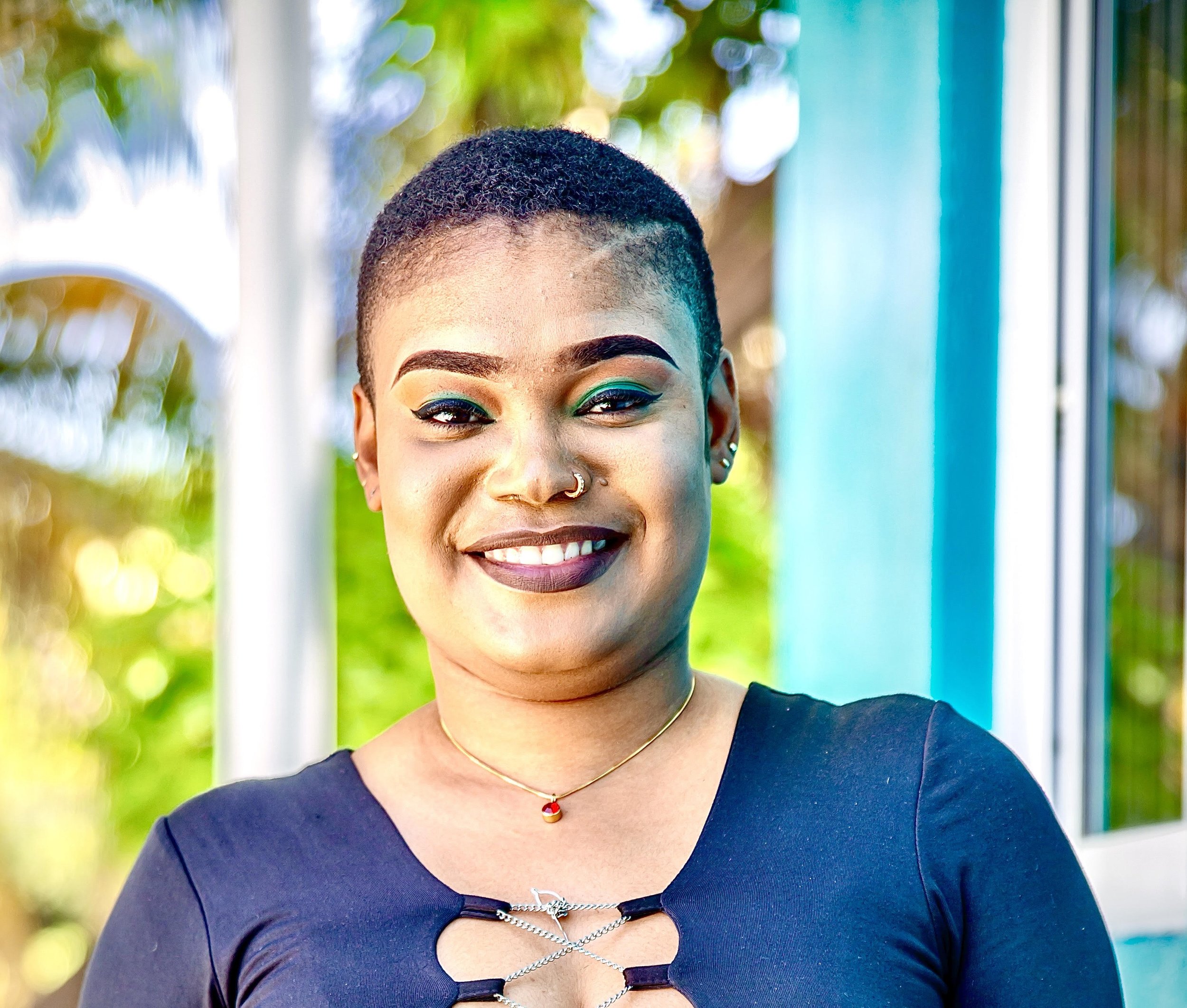Berthanie’s Story: To Be a Mother in Haiti
It is 11 o’clock in the morning.
It is a blazing sun in Port-au-Prince.
It hasn’t rained in months.
Covered in dust, I went to see Miss Fredelyne, leader of the Heartline Maternity Center, when I saw a woman at the gate I later knew as Berthanie. She was coming to her postpartum appointment, a new baby in her arms. We got lost in a long, warm conversation where she told me about her life: her memories, her challenges, and her feelings as a new mother to a little Haitian girl.
A young woman of 29, mother of a 3 month-old, Berthanie was raised in Jérémie (the “city of poets” as Haitians like to call it). She grew up in a loving and conscientious home, where discipline, rigor and honor were essential values. After finishing her schooling in Jérémie and then studying Management in Port-au-Prince, she became a clothing saleswoman. It must be said that in Haiti, it’s not always easy to find work in her field.
Berthanie had known bitter, sweet, and bittersweet days in a modest family of two children. She lost her father at a young age and had heavy responsibilities during her early childhood: looking after her little brother, cleaning and cooking after school and taking care of herself. Her widowed mother was a merchant, who had to go to the market every day and manage to bring food home by the evening.
“I didn’t have a happy childhood, but I liked to play with the other children around me, something my mother couldn’t stand. I remember one day, when she had locked me in the house to prevent me from playing with other kids, I found a way to open the door and went to play. One of the kids pushed me, I fell, and I broke my tooth. I was in so much pain then that I have learned my lesson to this day,” Berthanie says, with a wide smile where you can see the tooth that was broken.
Berthanie now lives in Santo 11, a village in the commune of Croix-des-Bouquets. There, the 400 Mawozo gang rules – one of the most feared gangs in Port-au-Prince. Sometimes when she travels to the Maternity Center, she leaves very early in the morning to avoid kidnappers. Sometimes she can’t leave home at all because violence has erupted. “Believe me, it’s not easy to live in such a context, but I don’t really have a choice,” she explains.
Berthanie gave birth to her beautiful baby girl at the Heartline Maternity Center on December 27th, 2022. “During the delivery, I was welcomed at Heartline Maternity by a great team that listened and was very available. I had a very nice midwife who took very good care of me and offered me a lot of things to help me go through labor. When I have a request, I just call someone and a smiling face arrives,” she says.
Photo provided by the author.
Now, after a pregnancy marked by joy and celebration, Berthanie finds herself at home, exhausted and often alone. It was a feeling she didn’t expect. In this season of her life, Berthanie is confronted with her own worries, preconceived notions, expectations – what I would call ‘the myth of the fulfilled mother.’ But she’s learned to forget these self-inflicted anxieties to become a great mother – and she won’t do it alone.
One of the unique benefits of the Heartline maternal health program is that it doesn’t end upon delivery. New mothers like Berthanie will remain in community with their midwives and nurses, along with all the other women in their cohort. For months to come, they’ll share meals at the Maternity Center, attend weekly postpartum classes on topics like infant nutrition and postpartum health, and get regular social time with other new mothers and their babies.
“Being a mother is the biggest and best role in my life. The most rewarding and the most difficult. Being a mother has brought out the best and worst in me. Sometimes on the same day…” she says. “Being a mother often means coming last, compromising. Making sure that your child is well, has everything she needs on a human, emotional and material level – because a mother is fully well when her child is well.”
About the Author
Aljany Narcius
Haitian journalist Aljany Narcius is currently pursuing a Master 2 in Media Management, online from France’s University of Lille. With ten years of experience in the fields of journalism and communication, Aljany is a linguist who uses the Creole language as her weapon in the fight against social inequalities, exploitation, and all kinds of violence.



